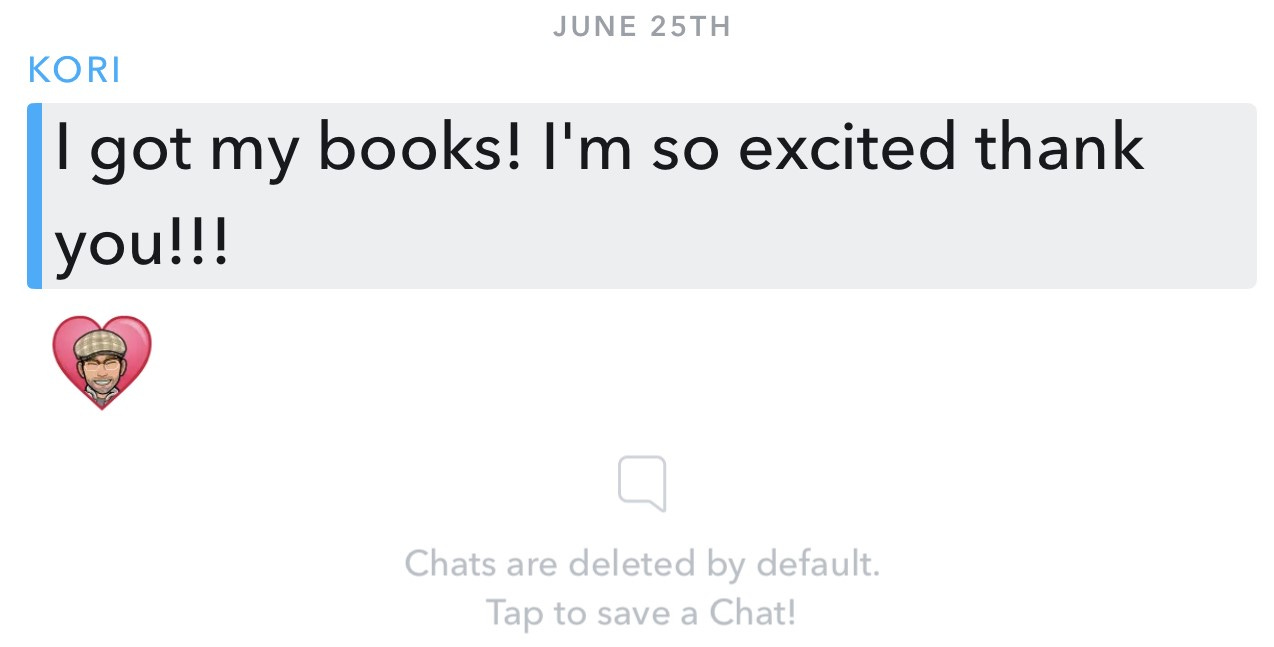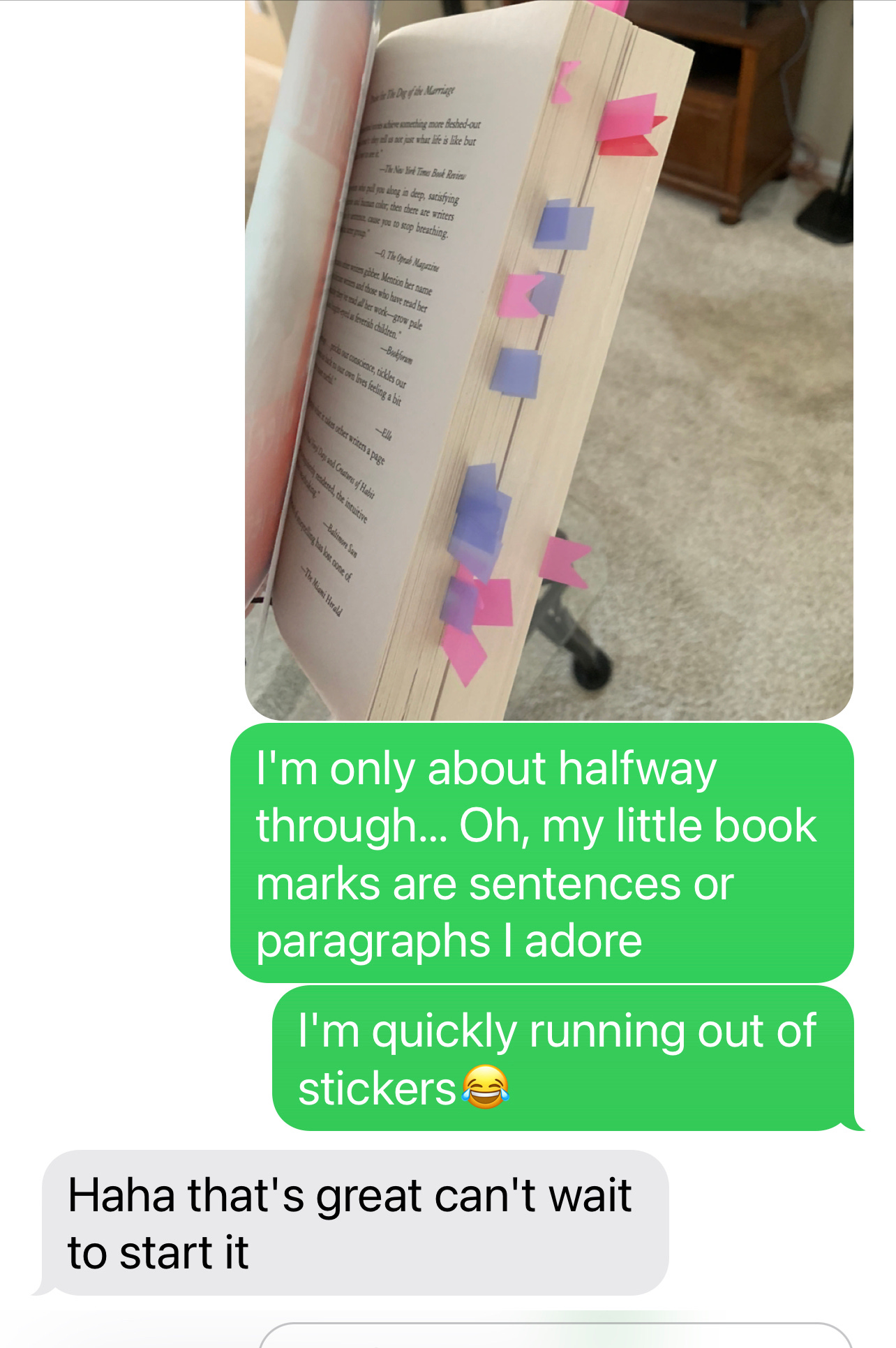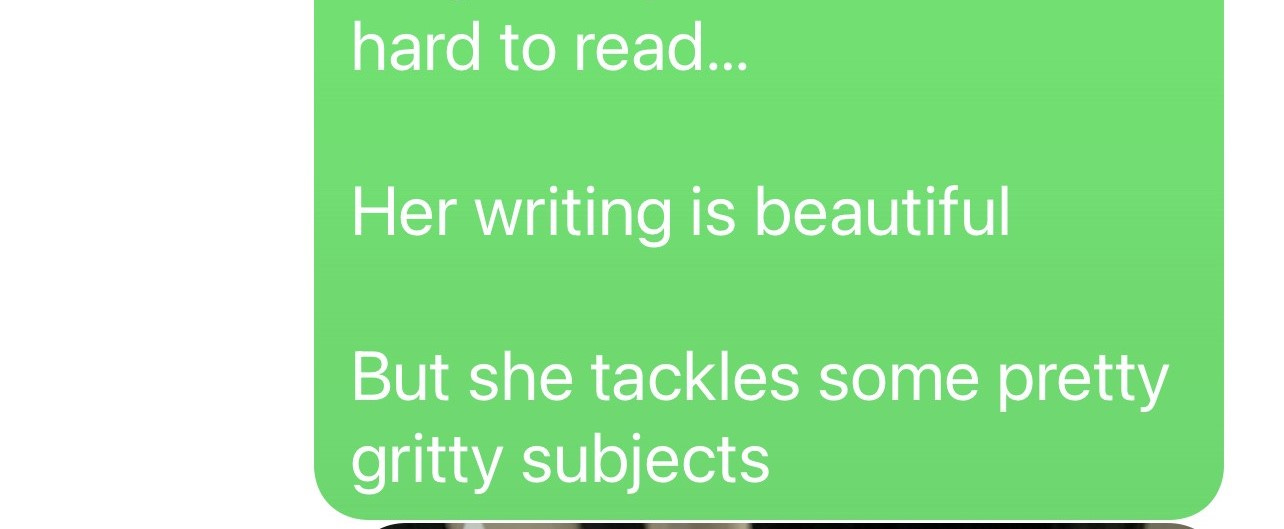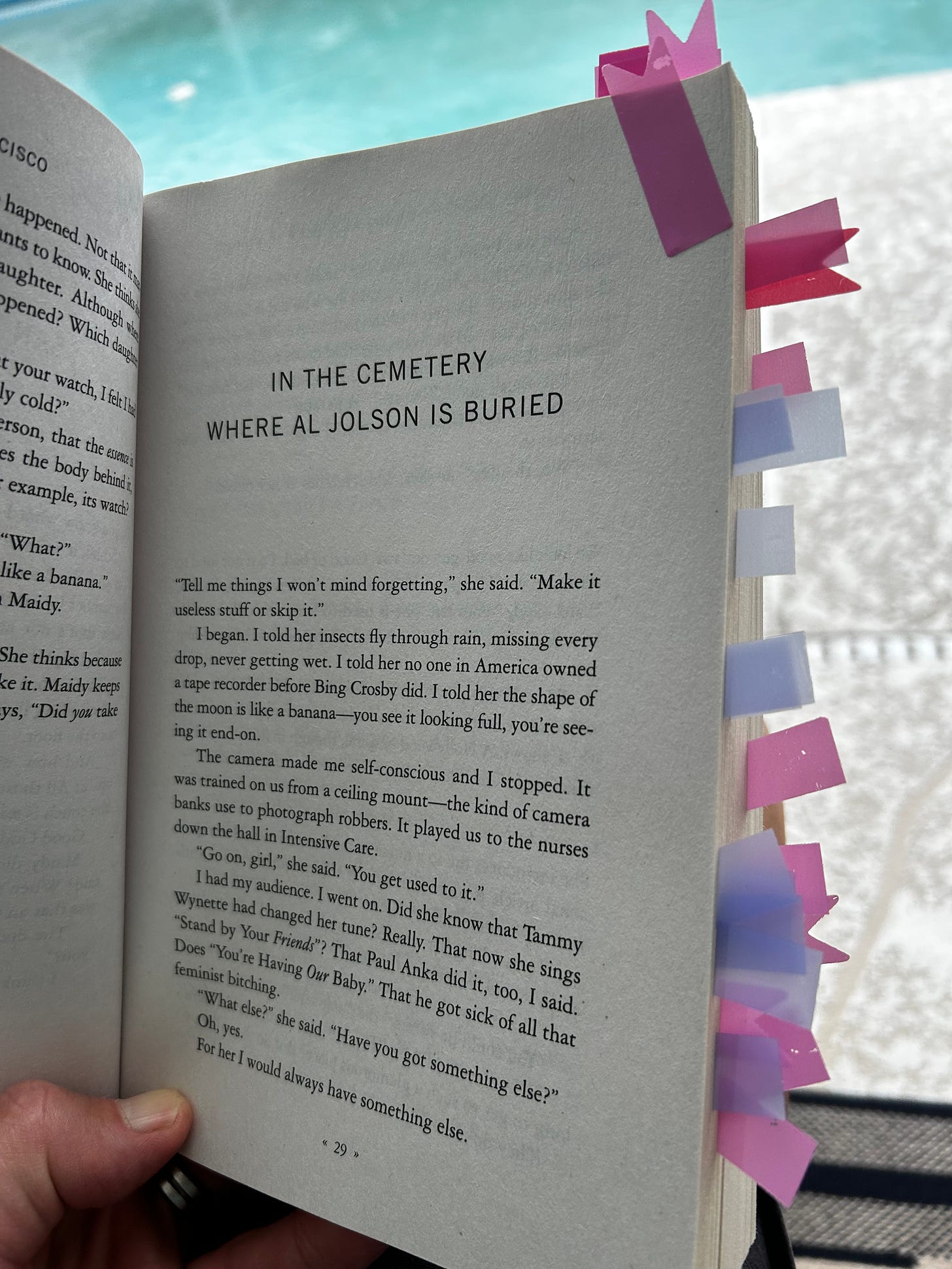Amy is Missing
And you owe it to yourself to find her.
Amy is missing.
I’ve searched and searched and called around. She’s not where I last saw her, and not with the rest of her friends.
Chuck, Rick, Thom, and Ray.
Anne, Bret, Tobias, and Tim.
They have their stories.
But—no Amy.
Who’s Amy?
Me too!
That’s what I said.
“Who’s Amy?”
The waitress brought plates. The father passed sugar to the boy and salt to the girl without being asked. He watched the girl shake out salt onto the fries.
"If I had a sore throat, I would gargle with those," he said.
"Looks like she's trying to melt a driveway," the boy offered.
The father watched his children eat. They ate fast. They called it ‘Hoovering’. He finished while they sucked at straws in empty drinks.
"Funny," he said thoughtfully, "I'm not hungry anymore."
Every meal ended this way. It was his benediction, one of the Dad things they expected him to say.
It was Chuck
Chuck Palahniuk recommended Amy, but I resisted.
Page 193. Consider This: Moments in My Writing Life after Which Everything Was Different
Nineteen titles, in alphabetical order. Collections of stories and short novels to devour, dog-ear, and deconstruct.
Writers are nothing if not voracious readers. And I’m ravenous.
Airships by Barry Hannah
Campfires of the Dead, Peter Christopher
Cathedral by Raymond Carver
Drown by Junot Diaz
Faraway Places Tom Spanbauer
…
Amy was 13th on the list, but I didn’t bite.
Chuck doesn’t let up
Then, he did it again in Stranger Than Fiction: True Stories.
This time, Chuck devotes an entire story to Amy.
“When you study minimalist writing in Tom Spanbauer’s workshop, the first story you read is Amy Hempel’s “The Harvest.” Next, you read Mark Richard’s story “Strays.”
“After that, you’re ruined.”
{Not Chasing Amy}
p.141
Reluctantly, I bit. Times two.
I bought two copies of The Collected Stories of Amy Hempel on Chuck’s second recommendation and sent one to my daughter, Kori.
I thought it would help her pass the time on her upcoming transatlantic flight.
We read our books together, Kori and I.
Sharing what we liked and what we loved.
Good fiction lets you forget about your life.
Great fiction gives you a different life instead.
—Paul D’Arcy
And we shared the things we didn’t understand.
The way I read…
Every book gets an allotment of sticky tabs. Thin strips of colored plastic, sticky on one side, down at the end. You’ve seen them. Like little flags, we plant along the trail, marking what we found so we don’t forget.
I start every book by peeling off a stack of these colorful sticky flags to use as a bookmark. And then, as I’m reading, whenever I come across a brilliant idea or stellar line of prose—in a single sticker goes.
Amy started with a stack of pink.
But I soon ran out, so purple, red, and pale were added to keep up.
My sticky little flags mark the passages I love.
Vertical markers remind me the whole page is brilliant.
But what to do when the entire story, every line, leaves you suspended in awe?
That’s when I came up with the left-leaning vertical flag.
Amy is the first and only author to earn the left-leaning vertical flag.
Twelve pages.
The emotion, trivia, heartbreak, and humor packed into every line—every exchange pulls you deeper into the story, revealing more of what you’ve already read.
You’re there.
You’ve been there; you’re going there; it’s where we all end up as caretakers, lovers, spouses, fathers, mothers, or friends, and now you’re there with them in all their awkward intimacy.
I think of the chimp, the one with the talking hands.
In the course of the experiment, that chimp had a baby. Imagine how her trainers must have thrilled when the mother, without prompting, began to sign to her newborn.
Baby, drink milk.
Baby, play ball.
And when the baby died, the mother stood over the body, her wrinkled hands moving with animal grace, forming again and again the words: Baby, come hug, Baby, come hug, fluent now in the language of grief.
In the Cemetery Where Al Jolson is Buried
by Amy Hempel
But now, nothing is where I think it is.
We’re moving, Keylea and I.
Transitioning might be a better word.
Transitioning from our home in Michigan to a smaller home in Florida and juggling two remodeling projects two days drive apart in the process.
Insane is what it is.
When we left Michigan this time around, I packed all the books I couldn’t live without, The Collected Stories of Amy Hempel being one of them.
But now I can’t find it anywhere.
Sure, I can get another copy.
But that’s not the same, is it?
The notes, insights, and ongoing arguments scribbled into the margins. All the sticky notes and colored tabs. The dogeared pages and errant stains.
Our books grow and evolve with us, don’t they?
Each time we read, we learn more—about the story, the author, and ourselves.
You’ve had the experience.
You see a book lying on a coffee table, shoved in a drawer, tucked away on one of your many, many bookshelves.

Thumbing through the pages, a section of highlighted text leaps off the page.
“So do not write to be liked. Write to be remembered.”
—Chuck Palahniuk
Consider This: Moments in My Writing Life after Which Everything Was Different
Page 46.
I couldn't imagine where she went.
I questioned Keylea, too, of course. But she's not the librarian. I am.
"It's the Amy Hempel book. Red cover. The one with all the sticky tabs," I said.
No luck.
We checked the trunk, the back seat, and even the glove compartment as if, by some bizarre twist, one of us (like me🙄) slipped it in there for safekeeping.
We were almost ready to leave it at that, to accept that Amy had somehow disappeared into the ether.
But then I found her.
At the very bottom of the last U-Haul box, under a jumble of knick-knacks and fragile photo frames, there it was: The Collected Stories of Amy Hempel, looking just as worn and just as precious as it did the last time I saw it.
I flipped open and thumbed through the pages.
All the highlights, notation, and tabs were still there, each one a tiny window into a different time. It's uncanny, really, how a book becomes a mirror reflecting the layers of our past selves. Every scribbled note and highlighted sentence—a breadcrumb on the trail.
It's like opening an old diary.
We may have written the words, words laid down by an earlier version of ourselves, someone with fewer answers and different questions.
Sometimes, we laugh at our naivety. Other times, we marvel at our past insight.
The past me surprises the hell out of the current me.
A note in the margin will capture an idea so succinctly that I wonder how that younger version of myself got it so right—and how quickly I’d forgotten it.
Those jolting moments make me realize growth isn't linear at all; it's a series of long looping backtracks and giant leaps.
And that's when it hit me.
My book may have been missing, but Amy never was.
She was in my thoughts, dialogue, and words on the page. Amy shapes the stories I tell and the way I tell them.
Because the best stories, the best authors—they don't just live on our shelves. They inhabit our souls. They shape our perceptions and stick with us, quite literally in my case, through every colorful transition.
I thought Amy was missing
But then I found her, and now everything is different.
The other day, I was playing Scrabble with Karen. I saw that I could close the space in D-E-_-Y.
I had an N and an F.
Which do you think I chose?
—Amy Hempel
Tumble Home
I found Amy. But as it turns out, she was with me all along.
And you know what?
Chuck’s right.
I’m ruined.
I love you guys! 😊
-Paul






